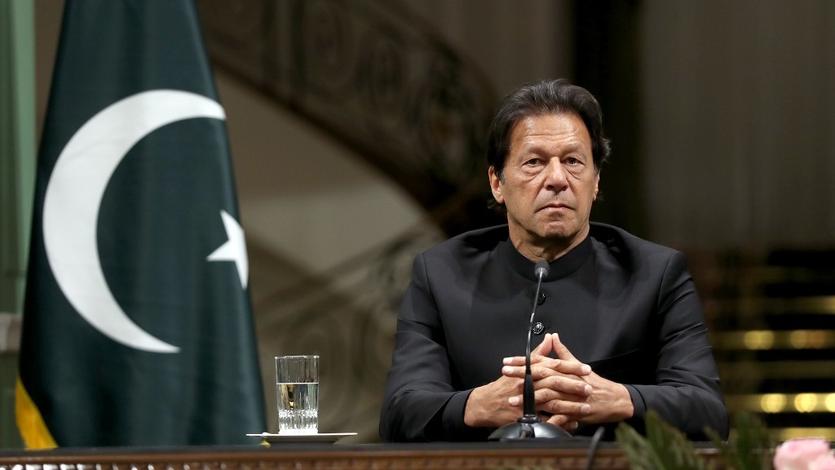 A handout picture provided by the Iranian presidency on April 22, 2019, shows Pakistani Prime Minister Imran Khan giving a press conference with the Iranian president in the capital Tehran.
(IRANIAN PRESIDENCY / AFP)
A handout picture provided by the Iranian presidency on April 22, 2019, shows Pakistani Prime Minister Imran Khan giving a press conference with the Iranian president in the capital Tehran.
(IRANIAN PRESIDENCY / AFP)
Prime Minister Imran Khan said Pakistan is pushing for a political settlement in Afghanistan before foreign troops leave later this year, to reduce the risk of civil war in its western neighbor.
The United States has said it will withdraw all its troops from Afghanistan on Sept 11 after a two-decade presence.
There is a lot of fear right now in Pakistan and I assure you that we are trying our level best that there is some sort of political settlement before the Americans leave.
Imran Khan, PakistanPM
More than 20 allied countries plan to follow suit.
"There is a lot of fear right now in Pakistan and I assure you that we are trying our level best that there is some sort of political settlement before the Americans leave," Khan told Reuters on Friday at his official residence in Islamabad.
ALSO READ: China, Afghanistan, Pakistan reach peace process consensus
Violence in Afghanistan has risen sharply since the troop withdrawal announcement, with the insurgent Taliban resisting pressure from Washington and its allies to agree to a political understanding leading to a peace deal.
"Since the moment the Americans gave a date, of when they were going to leave Afghanistan ... the Taliban feel they have won the war," Khan said, adding it was not going to be easy to get concessions from the Taliban after the US decision.
Regional Repercussions
Khan said Pakistan would suffer the most, after Afghanistan itself, if there was civil war and a refugee crisis.
READ MORE: Pakistan urges Taliban to stay engaged in Afghan peace process
"And then there would be pressure on us to jump in and become a part of it," Khan said.
He said his government had changed Pakistan's decades-long policy of pushing for "strategic depth" in Afghanistan to ensure that there was a friendly government there.
"Any Afghan government chosen by the people is who Pakistan should deal with," Khan said, adding that Pakistan "should not try to do any manipulation in Afghanistan".
Pakistan has long been accused of harboring leaders and fighters of the Taliban, whom Islamabad helped to power in 1996, even as the insurgent group fought US-led foreign troops.
Khan said a lot depended on US special envoy Zalmay Khalilzad, with Pakistan's and Afghanistan's help, to carve out a settlement to avoid more bloodshed.


